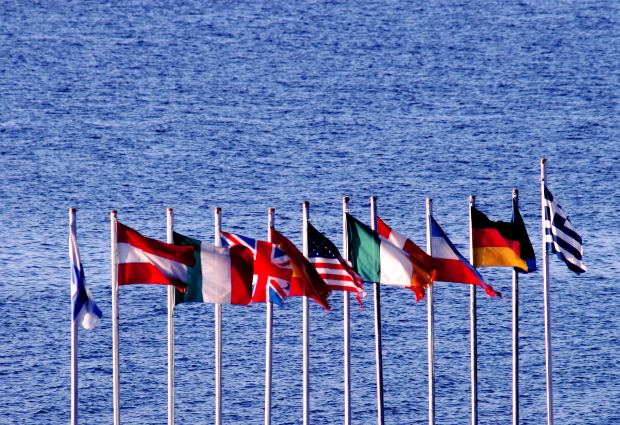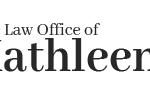
by Kathleen Lynch | Aug 26, 2014 | Confidentiality, Entrepreneur, Intellectual Property, Inventor, Patent, Trade Secrets
I had lunch with a colleague who is an IP attorney and an engineer. He was telling me about his participation in a start up weekend and all of the challenges and fun that he had. In hearing this, we discussed, as patent attorneys do, the consequences of disclosing ideas to a loosely held group of people whose only relationship to each other is on the back of a napkin.
Most start up weekends do not impose any obligation of confidentiality on their attendees for all that is developed and disclosed in a 48 hour period. This raised the concern that perhaps anything that is developed that may be rather meaningful, i.e. might lead to actual commercialization of a product or service, may need to be “black boxed”. In other words, the team of developers could agree to disclose only the basic outline of the structure and/or function of the development and then disclose the details of the operation once a patent application has been filed or a confidentiality agreement has been signed.
To do otherwise may jeopardize the group’s ability to seek meaningful protection which may likely translate directly into meaningful funding. The US patent system has moved to a first inventor to file system. In that system, the inventor has a year to file on the invention developed after it has been disclosed. The rest of the world essentially requires absolute novelty. So if any invention is disclosed prior to a patent filing, any international patent rights outside the US may be lost completely. This is something worth considering when venturing into a start up weekend.
One aspect of any new development is the extent of patent protection available to the ultimate product or service. If all international patent protection is lost by the close of a start up weekend as a result of disclosure, then the level of funding and any significant patent advantage may be lost. It remains that anyone involved in a start up weekend should ask the appropriate questions regarding disclosure with the organizers and raise any concerns with the team as it could impact the protection and funding of what may be developed during the weekend.
Protecting your innovative developments is critical to any start up venture. Having the right person to help you make that decision is important. The Law Office of Kathleen Lynch PLLC is designed to help businesses such as yours keep ahead of the game. The first telephone consultation is free. Email us at [email protected].

by Kathleen Lynch | Aug 19, 2014 | Entrepreneur, Patent
I am taking a break this week in my usual focus on intellectual property law, to give a shout out to the NCLEAP program here in North Carolina. I preface this by disclosing that I am an NCLEAP volunteer and sit on their steering committee.
NCLEAP (North Carolina Lawyer Entrepreneurial Assistance Program) is about a 7 year program that was established by North Carolina lawyers to provide pro bono assistance to low income entrepreneurs. Since its inception, it has assisted over 1000 entrepreneurs and small businesses. Volunteer lawyers from across the state provide low income entrepreneurs with pro bono corporate and intellectual property law advice and other legal matters relevant to a start up venture.
NCLEAP relies on donations to operate. If you are a lawyer licensed to practice in North Carolina, consider donating your time and expertise to help out a new business or entrepreneur. If you like the NCLEAP program, consider making a donation.

by Kathleen Lynch | Jul 15, 2014 | Entrepreneur, Inventor, Small Business, Trademark
The United States Patent and Trademark Office is hosting its 16th Annual Independent Inventor Conference on August 15-16, 2014 at its offices in Arlington Virginia. The conference will enable independent inventors and small business owners to learn about the patent system, as well as network with other entrepreneurs and inventors.
Senior level officials from the USPTO and others will present information on patents, trademarks, and other intellectual property (IP) matters. In addition, experienced business owners and inventors will relate their personal perspectives in bringing their dreams to market. Governmental and business development entities will discuss commercial best practices and the various resources offered by their organizations. Each attendee will have an exclusive opportunity to meet one-on-one with a USPTO expert or IP professional of his or her choice, as well as hear keynote addresses from major figures in the entrepreneurial world.
Attendees will also be able to choose from a variety of panels and breakout sessions that address specific intellectual property topics relevant to the modern inventor and small business owner. These sessions include hands-on workshops on patent and trademark application filing, prior art searching, and recent changes in legislation that affect business owners and inventors, among many other topics.
So if you are in the DC area, this looks like a great event for any entrepreneur or small business owner.

by Kathleen Lynch | Aug 30, 2013 | Entrepreneur
Recently, I was discussing with one of my clients what strategy to implement in moving forward with a provisional patent application filed less than a year ago. Our discussions highlighted the pros and cons of filing domestically or internationally, especially for an individual entrepreneur or small business. Here are some thoughts.
First, a note about the provisional patent system. For most parties involved, the provisional patent system is a good one. Especially in view of the new America Invents Act, where priority is given to the first inventor to file, the provisional system provides an effective and relatively inexpensive way to preserve priority while fine tuning your invention. In addition, once the provisional application is filed, you have up to a year to file a US utility application or seek protection on an international scale. In either case, the time provides an opportunity for increasing marketing efforts as well as further development of the invention.
For an individual entrepreneur or small business, there are obvious advantages to filing exclusively in the US. First, the cost benefit of filing in the US is noticeably less (for a small entity it is about $800 vs. $3500 internationally). In addition, the US markets are perhaps more developed and known at the time of initial development. However, an international application, even with its increased cost, will provide a platform from which multinational patent protection may be obtained. This may be a very attractive feature for a prospective investor or buyer. The option to seek patent protection in much of the world may outweigh the more costly upfront fees. In addition, once the international application is filed, the decision regarding national phase filing will not expire for roughly 18 months. In this rather substantial window of time, a marketing plan may be developed in which a third party may wish to assume the costs of the national phase filing or buy the innovation outright. At any rate, I believe an international patent filing strategy is certainly something to consider when weighing your patent filing options.







